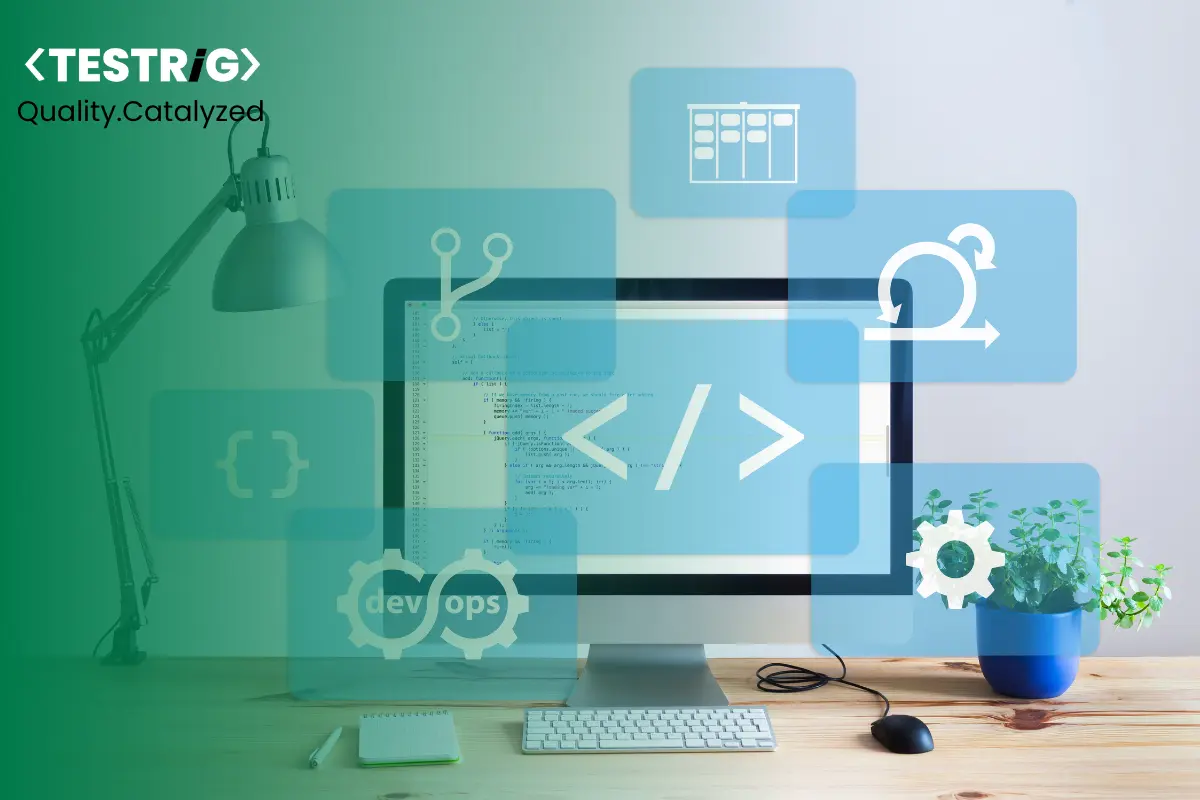
In the realm of modern software development and operations, two key methodologies, DevOps and TestOps, play crucial roles in ensuring efficient workflows and high-quality software delivery. While they share common goals centered around enhancing the development process, they have distinct focuses and approaches. Let’s delve deeper into understanding the differences between DevOps vs TestOps.
DevOps: Streamlining Development and Operations
DevOps is a collaborative approach that combines software development (Dev) with IT operations (Ops) to shorten the systems development life cycle and provide continuous delivery of high-quality software.
Objectives of DevOps:
- Faster delivery of software
- Improved collaboration and communication
- Enhanced reliability and stability
- Continuous integration and deployment
- Automation for efficiency
TestOps: Elevating Testing Practices within DevOps
TestOps refers to a specialized approach that focuses on optimizing testing processes within the DevOps framework to ensure comprehensive test coverage, robust quality assurance, and faster feedback loops.
Objectives of TestOps:
- Enhance testing efficiency and coverage
- Accelerate feedback loops for quicker bug identification
- Integrate testing seamlessly into the DevOps process
- Ensure high software quality and reliability
DevOps vs TestOps
| Aspect | DevOps | TestOps |
| Focus | Encompasses the entire software development lifecycle, emphasizing collaboration and integration between development and operations. | Concentrates specifically on optimizing the testing phase, focusing on enhancing testing procedures and ensuring high-quality testing within the DevOps pipeline. |
| Scope | Covers multiple phases: development, testing, deployment, and operations. Integrates various aspects of software delivery to achieve faster, more reliable releases. | Primarily emphasizes testing processes within the DevOps framework. Focuses on enhancing testing strategies, frameworks, and environments. |
| Primary Objective | Aims to accelerate the development process, increase deployment frequency, and improve overall software quality by fostering collaboration and automation across the development lifecycle. | Aims to improve the quality of the testing phase specifically, ensuring comprehensive test coverage, effective test automation, and efficient test environments to deliver high-quality software. |
| Key Components | Emphasizes continuous integration (CI), continuous delivery (CD), automation, collaboration, and communication among cross-functional teams. | Highlights test automation, creation of reliable test environments, continuous testing, and close collaboration between development and testing teams. |
| Emphasis | Integration of development and operations, breaking down silos, and fostering a culture of shared responsibility throughout the development lifecycle. | Integration and enhancement of testing within the broader DevOps framework, ensuring that testing aligns with development goals and quality standards. |
| Goal | Aims for faster, more frequent, and more reliable software releases, improving the efficiency and quality of the entire software delivery pipeline. | Focuses on delivering high-quality software by improving testing strategies, methodologies, and execution within the DevOps workflow. |
| Processes | Involves continuous integration, automated testing, deployment automation, infrastructure as code (IaC), and close collaboration between teams. | Involves extensive test automation, efficient test environment setup, continuous testing, and close collaboration between developers, testers, and other stakeholders. |
| Continuous Improvement | Encourages iterative improvements in development, operations, and overall collaboration, focusing on continuous learning and enhancement. | Drives iterative improvements specifically in testing procedures, tools, and practices, aiming for enhanced test coverage, accuracy, and efficiency. |
Conclusion
In essence, DevOps and TestOps are complementary methodologies that work hand in hand to ensure the efficient delivery of high-quality software. While DevOps sets the foundation for seamless development and operations, TestOps enriches this process by refining testing practices, ensuring the reliability and quality of the delivered software. Integrating both methodologies effectively can significantly enhance the software development lifecycle, enabling teams to meet customer expectations efficiently and effectively.
Contact Team Testrig, leading Test Automation Company to embark on a TestOps revolution with Testrig and achieve superior software outcomes!
Witness the impactful potential of TestOps and revolutionize your software development lifecycle with Testrig. Our professional TestOps approach integrates testing, development, and operations, optimizing processes, fostering collaboration, and ensuring high-quality software delivery. From meticulous planning and precise test design to seamless execution and thorough analysis, we expertly enhance every stage of the lifecycle for exceptional software results.